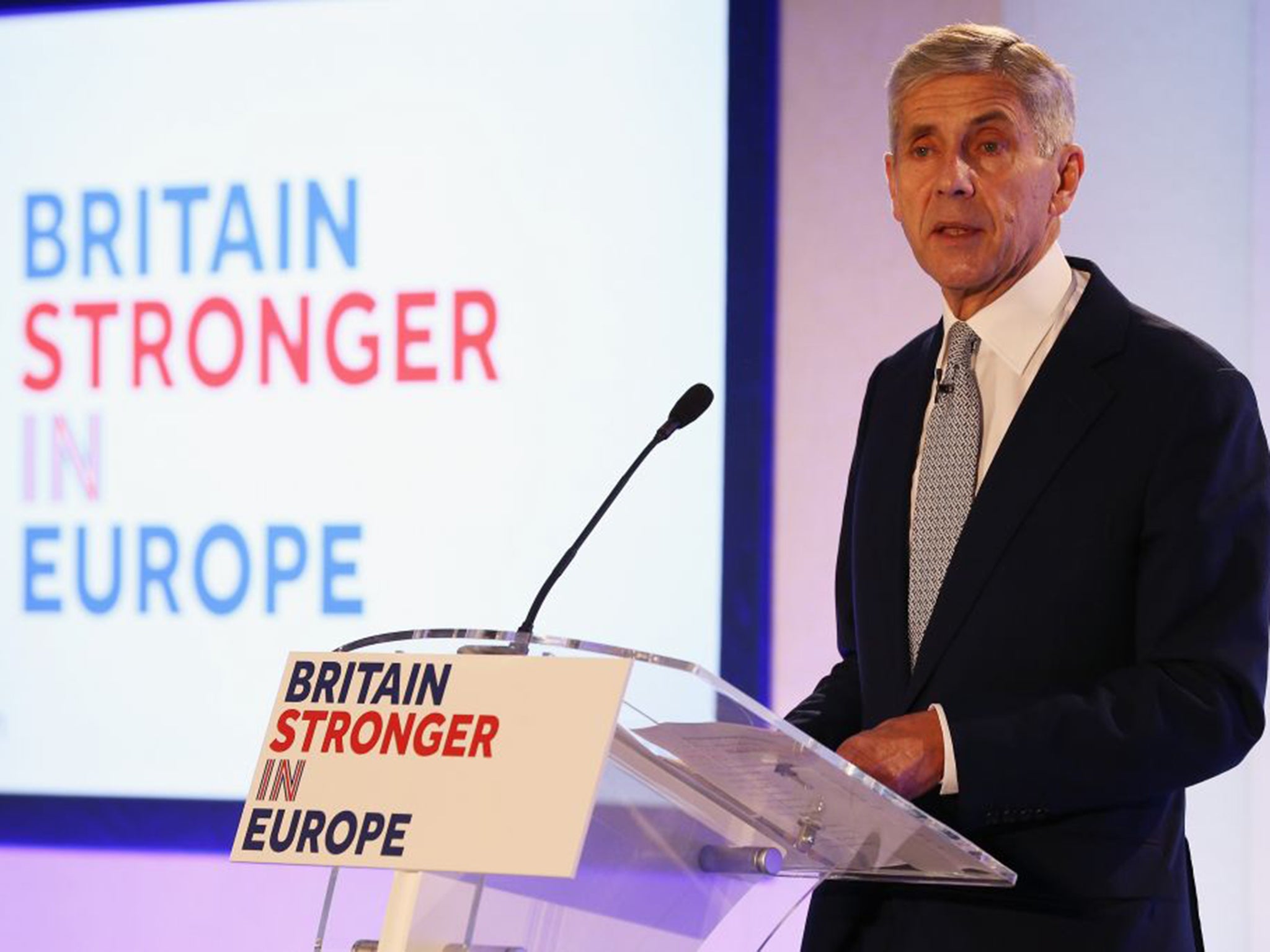In it to win it: The launch of the pro-EU campaign offers strong arguments for staying in. But this will be a long struggle

Your support helps us to tell the story
From reproductive rights to climate change to Big Tech, The Independent is on the ground when the story is developing. Whether it's investigating the financials of Elon Musk's pro-Trump PAC or producing our latest documentary, 'The A Word', which shines a light on the American women fighting for reproductive rights, we know how important it is to parse out the facts from the messaging.
At such a critical moment in US history, we need reporters on the ground. Your donation allows us to keep sending journalists to speak to both sides of the story.
The Independent is trusted by Americans across the entire political spectrum. And unlike many other quality news outlets, we choose not to lock Americans out of our reporting and analysis with paywalls. We believe quality journalism should be available to everyone, paid for by those who can afford it.
Your support makes all the difference.Those in favour of Britain retaining its role in Europe are sometimes derided as complacent, “Establishment” and starry-eyed about the European ideal. At times in the past, that has certainly been true. But the launch of Britain Stronger in Europe showed that pro-Europeans have learned their lessons.
Instead of politicians they chose figures from business, sport, the police and the armed forces, with some showbiz personalities to front the campaign. Rather than relying on rhetoric about “ever-closer union” and fading memories of world war, the emphasis is forward-looking and patriotic, placing national economic interest at the centre of the argument.
And there is a greater sense, so far, of cohesion in this positive campaign than in the splintering Out factions. It is smart politics, or at least smart PR, to modernise the campaign in this way. The politicians who might conceivably pioneer an In campaign possess, shall we say, a mixed voter appeal. Assuming that David Cameron and George Osborne take a back seat until the negotiations are completed – necessarily many months away – the British public would be faced with those such as Tony Blair, Gordon Brown, Ken Clarke, Tim Farron, Vince Cable, Chuka Umunna and Alex Salmond to push the case for staying in.
Some of those are capable of repelling as many voters as they attract, just as, to be fair, Nigel Farage, Boris Johnson and, possibly, Jeremy Corbyn are too. Though Lord Rose is not yet well known, he at least possesses none of the “yuk” factor that some of the aforementioned would bring to any campaign.
Removing politicians to some extent takes politics out of it too, and makes sure that any mid-term government unpopularity doesn’t pollute the referendum campaign. Like M&S menswear, Lord Rose is well suited to almost every occasion and offensive to none.
But what of the “old” arguments for? Although unfashionable, they still retain power. There is a case for Britain in Europe that is based on economic self-interest – but there is also a case based on the fact that Europe, with Nato, has preserved the peace on the continent for seven decades. We need only glance at what has happened in Eastern Europe and the Balkans, from former Yugoslavia to Crimea and eastern Ukraine today, to realise that ugly nationalism can burst into life if not subsumed into some wider democratic movement.
The refugee crisis underlines that cross-border challenges can only be dealt with by nations freely working together. Much the same goes for climate change, trade, fisheries conservation and many other practical issues. If we are to compete with each other in the Single Market – an achievement championed by British Conservatives in the 1980s – we do need common, minimal standards for workers’ welfare. If we were to trade with Europe from outside the EU, as Switzerland and Norway do, we might have to accept all manner of regulations as a condition anyhow. And common human and workers’ rights are a good thing in themselves.
None of which means that winning the referendum will be easy. The Scottish independence poll last year showed just how rapidly public opinion can shift if it feels patronised or threatened. The promise of an adventurous different future can appeal; and the obviously rich and powerful characters dominating the Stay campaign may not “connect” with those in, say, Redcar who care less for theories about free trade and more about the imminent death of their town. The battle for Europe has only just begun.
Join our commenting forum
Join thought-provoking conversations, follow other Independent readers and see their replies
Comments